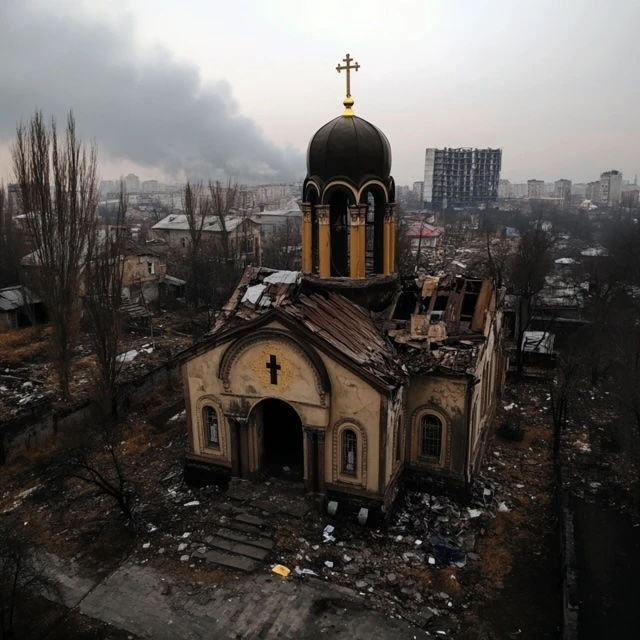The Heresy of Hell (Part 4 of 4)
- Mark Johnson

- Mar 18, 2025
- 4 min read
A Strong Argument for a Second Chance After Death: The Overwhelming Consuming Fire of God’s Love

Introduction: Rethinking Judgment and the Nature of God
The traditional view of no second chances after death is largely based on Augustine’s theology and medieval doctrine, but does Scripture truly close the door on postmortem salvation? A careful examination of God’s love, divine judgment, and biblical hints of restoration suggests that God’s mercy extends beyond the grave.
1. God’s Judgment is a Consuming Fire of Love, Not Eternal Rejection
Hebrews 12:29 – “Our God is a Consuming Fire”
• Many see God’s fire as punitive, but in Jewish and Christian thought, fire is often purifying, not just destructive.
• 1 Corinthians 3:13-15 – “Each one’s work will be revealed by fire… If anyone’s work is burned up, he will suffer loss, but he himself will be saved, yet as through fire.”
• Isaiah 33:14-15 – “Who can dwell with the consuming fire? The righteous!” (Fire purifies, it does not only destroy.)
• Could it be that the “fires of hell” are not eternal torment, but the overwhelming, refining love of God that burns away sin?
2. Every Knee Will Bow and Confess Jesus is Lord – Universal Submission
Philippians 2:10-11 – “Every Knee Will Bow”
“At the name of Jesus every knee should bow, in heaven and on earth and under the earth, and every tongue acknowledge that Jesus Christ is Lord.”
• The phrase “under the earth” in Greek (katachthonion) refers to the realm of the dead.
• This suggests that even those who have died will acknowledge Christ!
• Romans 14:11 echoes this prophecy – “Every knee shall bow, and every tongue shall confess.”
If this confession is forced, is it truly worship? Or does this indicate the possibility of postmortem repentance?
3. Biblical Hints at Redemption Even After Death
1 Peter 4:6 – The Gospel Preached to the Dead
“For this is why the gospel was preached even to those who are now dead, so that they might be judged according to human standards in the body, but live according to God in the spirit.”
If salvation ends at death, why does Peter say the gospel was preached to the dead?
Lamentations 3:31-33 – “The Lord Will Not Cast Off Forever”
“Though He causes grief, He will have compassion according to the abundance of His steadfast love; for He does not afflict from His heart.”
Would a God who “does not afflict from His heart” permanently damn His creation?
Colossians 1:20 – “Reconciling All Things to Himself”
“For through Him, God was pleased to reconcile to Himself all things, whether things on earth or things in heaven, by making peace through His blood on the cross.”
If Hell is permanent, how can God reconcile “all things” to Himself?
4. Near-Death Experiences (NDEs) and God’s Love in the Afterlife
Modern near-death experiences (NDEs) offer striking evidence that God’s love and mercy extend even beyond the grave.
A. People Who Died and Were Given a Second Chance
Howard Storm – An atheist professor who had a near-death experience, was drawn into a place of darkness but was rescued when he cried out to Jesus. He later converted and became a Christian.
George Ritchie – A medical doctor who died briefly and saw a realm where lost souls were trapped in despair but could still be reached by the light of Christ.
Dr. Eben Alexander – A neurosurgeon who was an atheist but encountered a realm of unconditional love after temporarily dying.
These cases suggest that even those who initially reject God may still experience His love and have the opportunity to respond to it.
5. Historical and Theological Support for Postmortem Salvation
A. The Early Church Did Not Teach Eternal Rejection
• Origen (184-253 AD) – Taught Apokatastasis, meaning that all will ultimately be reconciled to God.
• Gregory of Nyssa (4th century) – Believed God’s love would eventually redeem all people.
B. The Parable of the Prodigal Son (Luke 15:11-32)
• The Father (God) never stops waiting for the lost son to return.
• Could this apply even after death?
If God’s love never fails (1 Corinthians 13:8), can He truly abandon His creation eternally?
A second chance after death aligns with both God’s love and justice, as supported by Scripture, theology, and historical Christian thought.
Biblical evidence suggests that redemption beyond death is possible, as seen in passages about Christ preaching to the dead and God reconciling all things to Himself. The Greek term for “eternal fire” often refers to age-lasting correction rather than never-ending torment, reinforcing the idea of divine purification. Philosophically, a God of infinite love would not be constrained by a single lifetime to bring about the full redemption of His creation. Experiential evidence from near-death experiences (NDEs) further supports the idea that God continues to draw even the lost into His love. Many early Church Fathers, including Origen and Gregory of Nyssa, upheld the belief that all souls will ultimately be restored to God. If “every knee will bow” and “our God is a consuming fire,” then God’s love may purify rather than eternally condemn, leading to ultimate restoration.





Comments